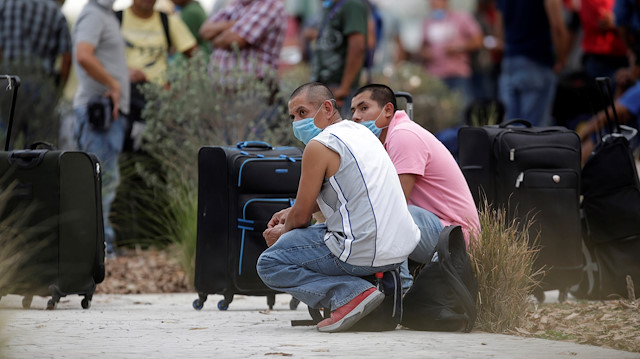
Migrants should be released from coronavirus high-risk US detention centers, says UN special rapporteur
The US must urgently use available alternatives for the detention of migrants held in overcrowded and unsanitary administrative centers in order to counter the risk of a novel coronavirus outbreak, a UN human rights expert said Monday.
"It is very difficult to keep the necessary physical distance in overcrowded detention facilities," said the UN Special Rapporteur on the human rights of migrants, Felipe Gonzalez Morales.
"Significantly reducing the number of detained migrants by releasing them into alternative settings can easily solve this," he said in a statement.
Gonzalez Morales said that UN human rights experts had received repeated reports of unsanitary conditions and a lack of proper health care for 1,500 detainees in the Northwest Processing Center in Tacoma, Washington State.
The GEO Group, a private company, runs the center for the US Immigration and Customs Enforcement.
The UN expert noted that none of those migrants had been detained for criminal offenses and that they were simply awaiting decisions on their immigration claims.
Gonzalez Morales said that together with a group of five UN human rights experts, he had asked the US administration and the GEO Group to guarantee access to health care, adequate water and sanitation facilities.
They are also seeking to strengthen the measures to prevent an outbreak of COVID-19 within the facility.
"We heard that there is a lack of protective measures for detainees, that it is impossible to keep the recommended physical distance, and that new arrivals are not being put into isolation for medical observation," said Gonzalez Morales.
"This raises grave concerns that the coronavirus could spread in the center -- a facility that has reported issues with providing inadequate healthcare and unsanitary conditions," he said, adding that administrative immigration detention should be used only as a last resort.
Authorities must first explore alternative measures that are essentially non-custodial, community-based accommodation and less restrictive care solutions, aiming at respecting the human rights of migrants and limiting the use of immigration detention, Gonzalez Morales underlined.
According to data compiled by the Maryland-based Johns Hopkins University, the US has nearly 966,000 confirmed COVID-19 cases and almost 55,000 deaths due to the virus.
After originating in Wuhan, China last December, the novel coronavirus, officially known as COVID-19, has spread to at least 185 countries and regions, with Europe and the US currently the worst-hit.
The pandemic has killed more than 206,000 people worldwide, with the number of cases totaling over 2.98 million and more than 869,000 recoveries.


